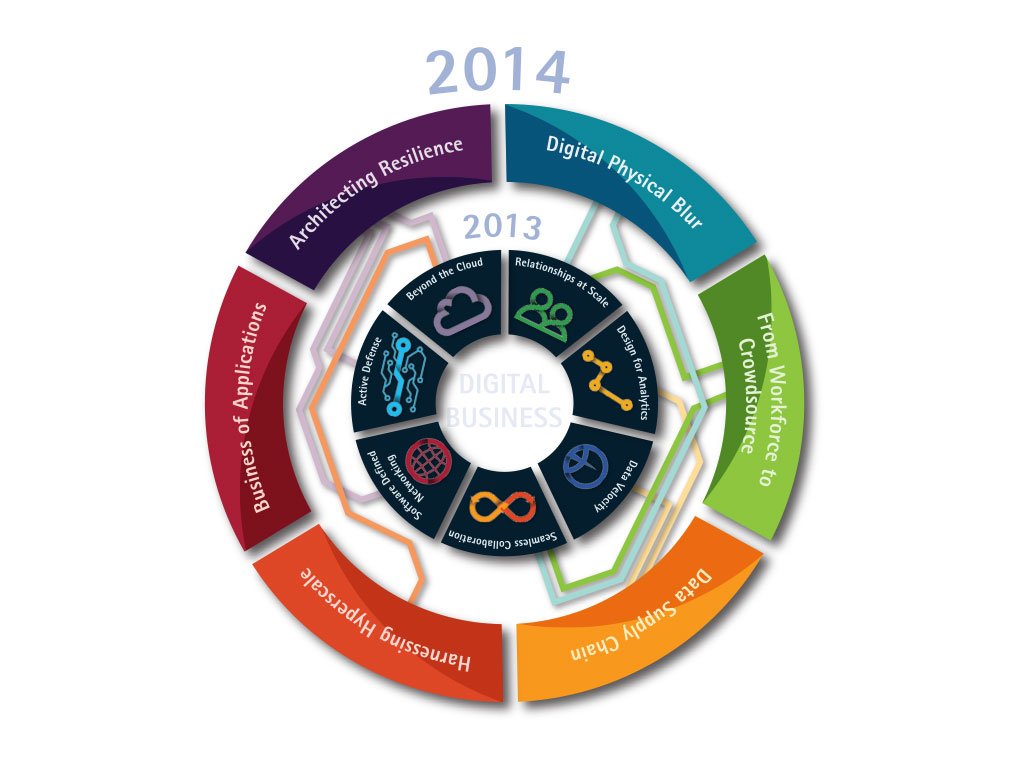“Every business is a digital business” – Accenture
Accenture has revealed six technology trends driving big shifts in large enterprises in their Technology Vision report. The $28 billion business consulting firm says that large enterprises take advantage of these trends and be just as effective as the current technology startups we are now seeing and admire so much. If businesses are serious about innovating and differentiating themselves from their competitors, it is key to become a true digital master. Accenture says that in the last 10 years we have seen digital start-ups do their thing and disrupt established companies. In the new shift that’s coming, traditional companies will start behaving as technological digital giants.
These types of companies would have been experimenting on easily with technologies such as cloud computing social media and mobile devices. Once the novice they are now becoming the Masters, with a new ambition to rewrite the digital playbook, armed with enormous financial resources, scale and process discipline. This scenario could leave little room for future Mark Zuckerbergs in the future. Accenture says there will be no room for ‘fast followers’ due to technology’s rapid pace:
The concept of the “fast follower” is becoming obsolete. In a world of nonstop change, there is no time to catch up. Instead, we expect the emerging digital leaders to be master orchestrators—uniquely able to strive for convergence on a huge scale as they capitalize on a wide array of technology breakthroughs to rapidly advance and innovate with their systems and strategies.
So the message is clear, if you can’t master digital technologies and leverage it quickly you wont survive the next decade. The Technology Vision report highlights six emerging themes that reflect the shifts being seen now among the digital power brokers of tomorrow: large enterprises that now recognize, as they leverage their scale to redefine digital in their industries, “that big is the next big thing”. Makes me wonder about today’s startups. Will they have to accelerate in scale to simply survive in the new shift?
The six tech trends are:
1. Digital–physical blur: Extending intelligence to the edge
Everything is coming online as objects, devices, and machines acquire more digital intelligence. ‘What’s emerging is more than just an “Internet of Things”; it’s a new layer of connected intelligence that augments the actions of individuals, automates processes, and incorporates digitally empowered machines into our lives, increasing our insight into and control over the tangible world. There are benefits for consumers and businesses’.
2. From workforce to crowdsource: The rise of the borderless enterprise
Technology will make enterprises borderless, allowing firms to tap resources globally. Accenture says ‘Cloud, social, and collaboration technologies now allow organizations to tap into vast pools of resources across the world, many of whom are motivated to help. Channeling these efforts to drive business goals is a challenge, but the opportunity is enormous’.
3. Data supply chain: Putting information into circulation
Data ecosystems are complex and littered with data silos, limiting the value that organizations can get out of their own data by making it difficult to access.To truly unlock that value, companies must start treating data more as a supply chain, enabling it to flow easily and usefully through the entire organization, partners included.
4. Harnessing hyperscale: Hardware is back
Eclipsed by more than a decade of innovation in software, the hardware world is again a hotbed of new development as demand soars for bigger, faster, lower-cost data centers. ‘In this new world, hardware matters more than ever in transforming enterprises into digital businesses with access to unlimited computing power that can be turned on and off as needed’.
5. The business of applications: Software as a core competency in a digital world
Enterprises are copying consumers by quickly adopting apps to create better operational agility. ‘There is a sharp shift toward simpler, more modular, and more custom apps. The implications are significant for IT leaders and business leaders alike: they must soon decide not just who plays what application development role in their new digital organizations but also how to transform the nature of application development itself.’
6. Architecting resilience: “Built to survive failure” becomes the mantra of the nonstop business
Businesses have to create processes so that they can run indefinitely. Transforming to a digital business implicitly increases a company’s exposure to risk through IT failures but ‘IT must adopt a new mindset to ensure that systems are dynamic, accessible, and continuous—not just designed to spec but designed for resilience under failure and attack’.
Image credit via Accenture.

Hayden Richards is Contributor of IntelligentHQ. He specialises in finance, trading, investment, and technology, with expertise in both buy-side, sell-side. Contributing and advising various global corporations, Hayden is a thought leader, researching on global regulatory subjects, digital, social media strategies and new trends for Businesses, Capital Markets and Financial Services.
Aside from the articles, interviews and content he writes for IntelligentHQ, Hayden is also a content curator for capital markets, analytic platforms and business industry emerging trends. An avid new media explorer Hayden is driven by a passion for business development, innovation, social business, Tech Trading, payments and eCommerce. A native Trinidadian, Hayden is also a veteran, having served with the Royal Air Force Reserves for the past 10 years.
Follow Hayden on Twitter @HaydenARichards, linkedin.com/haydenhrichards and http://www.scoop.it/u/hayden-richards










